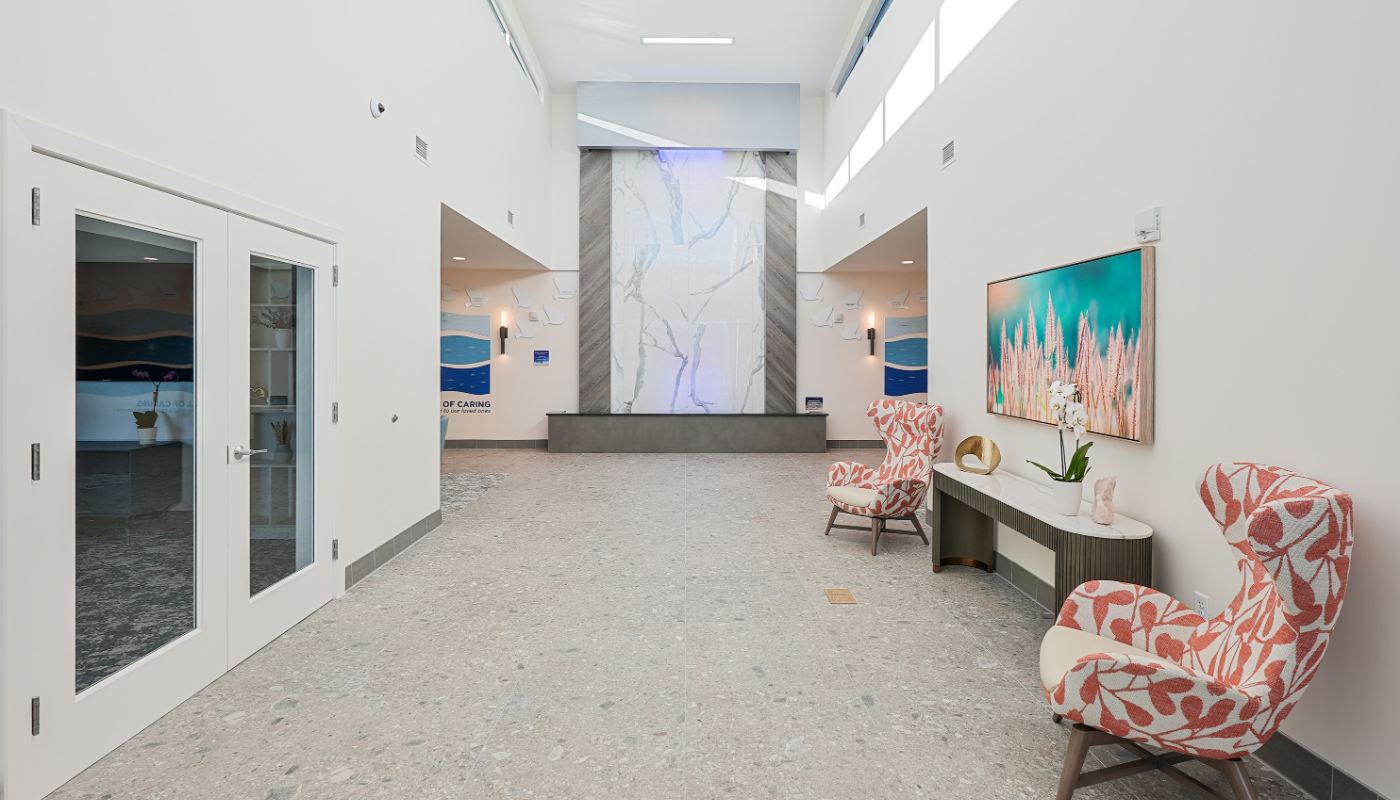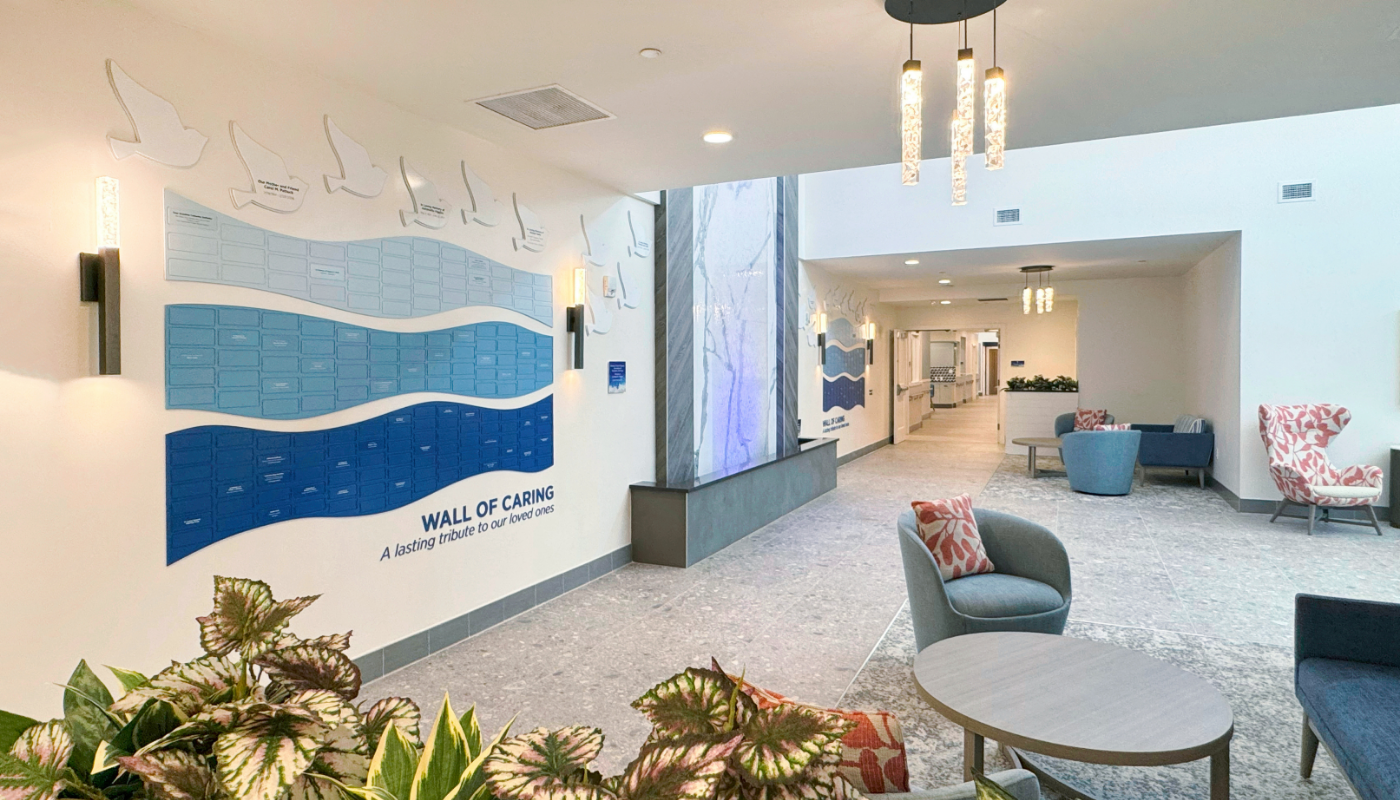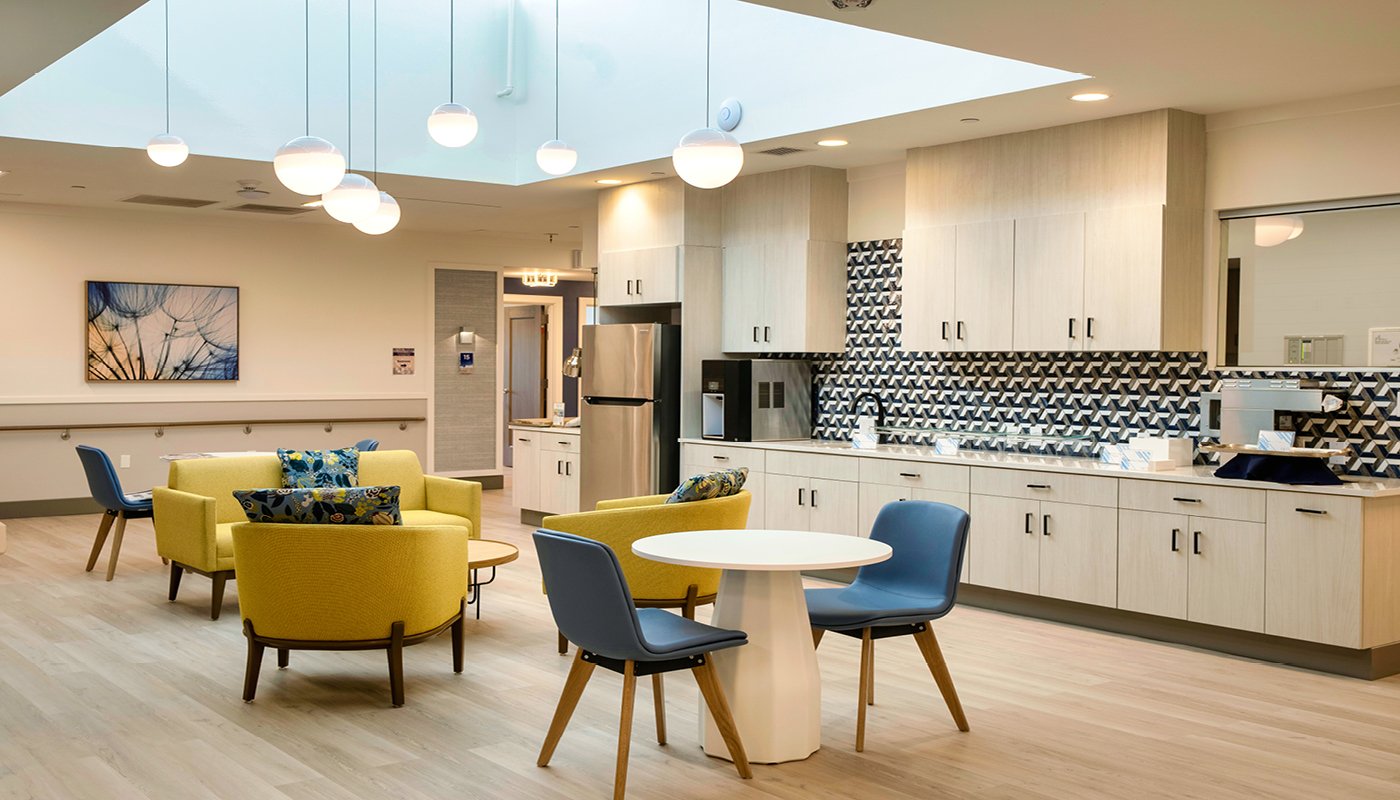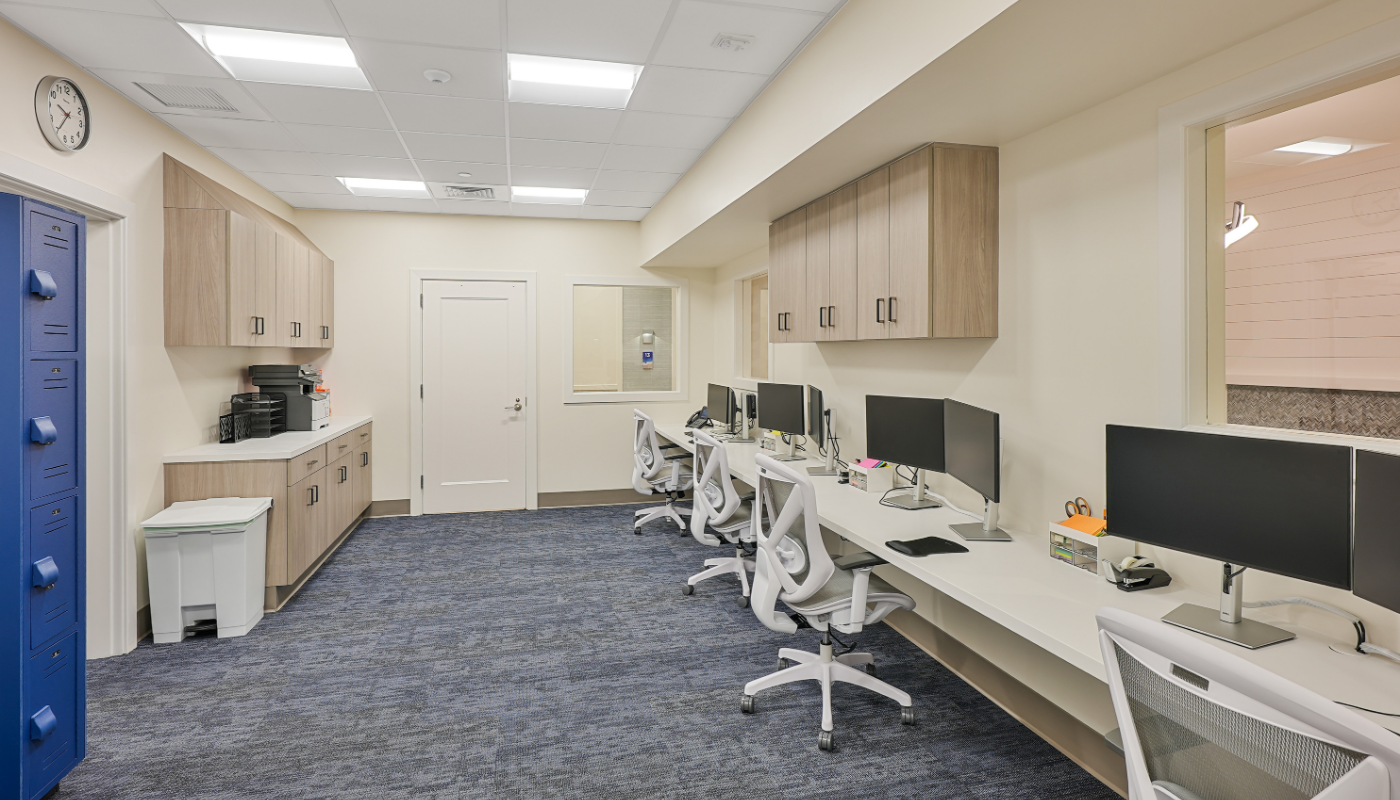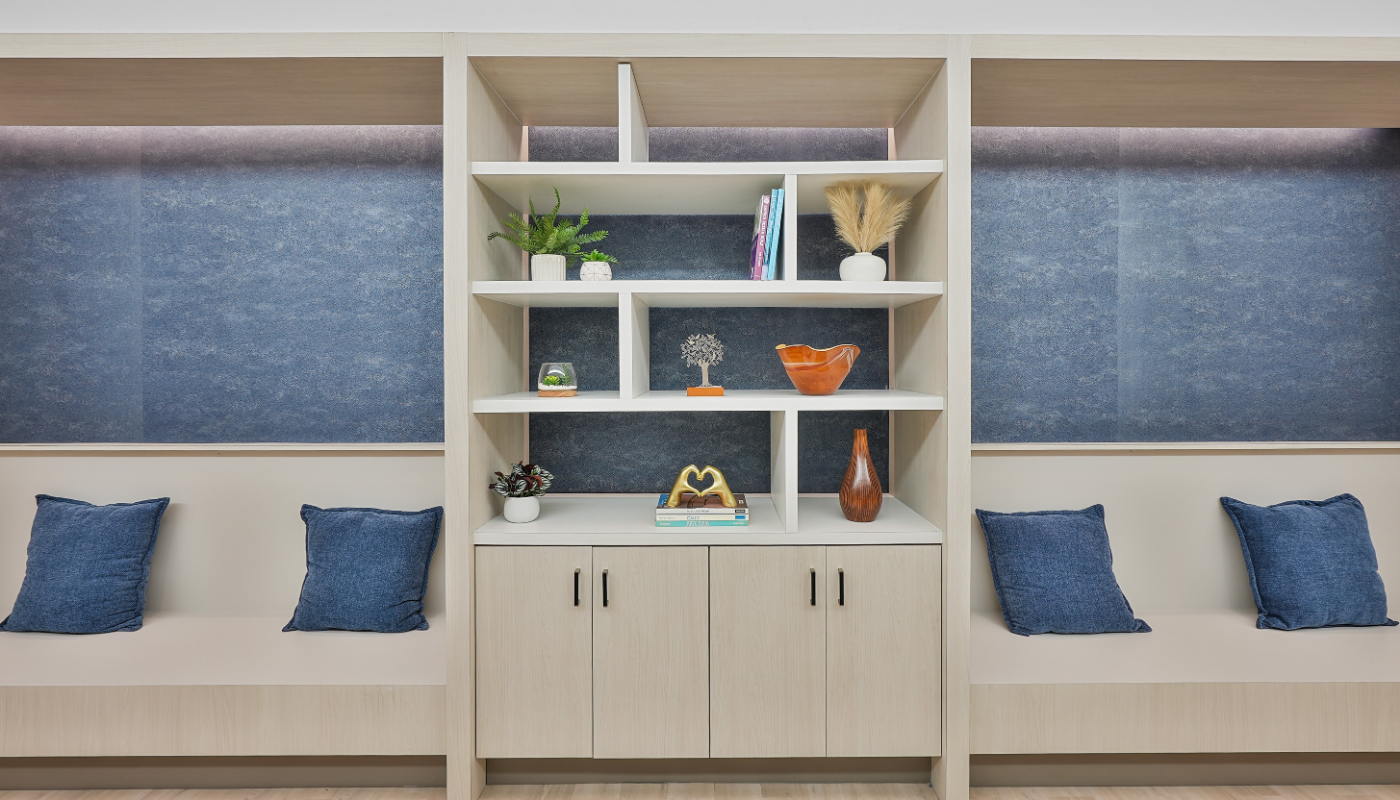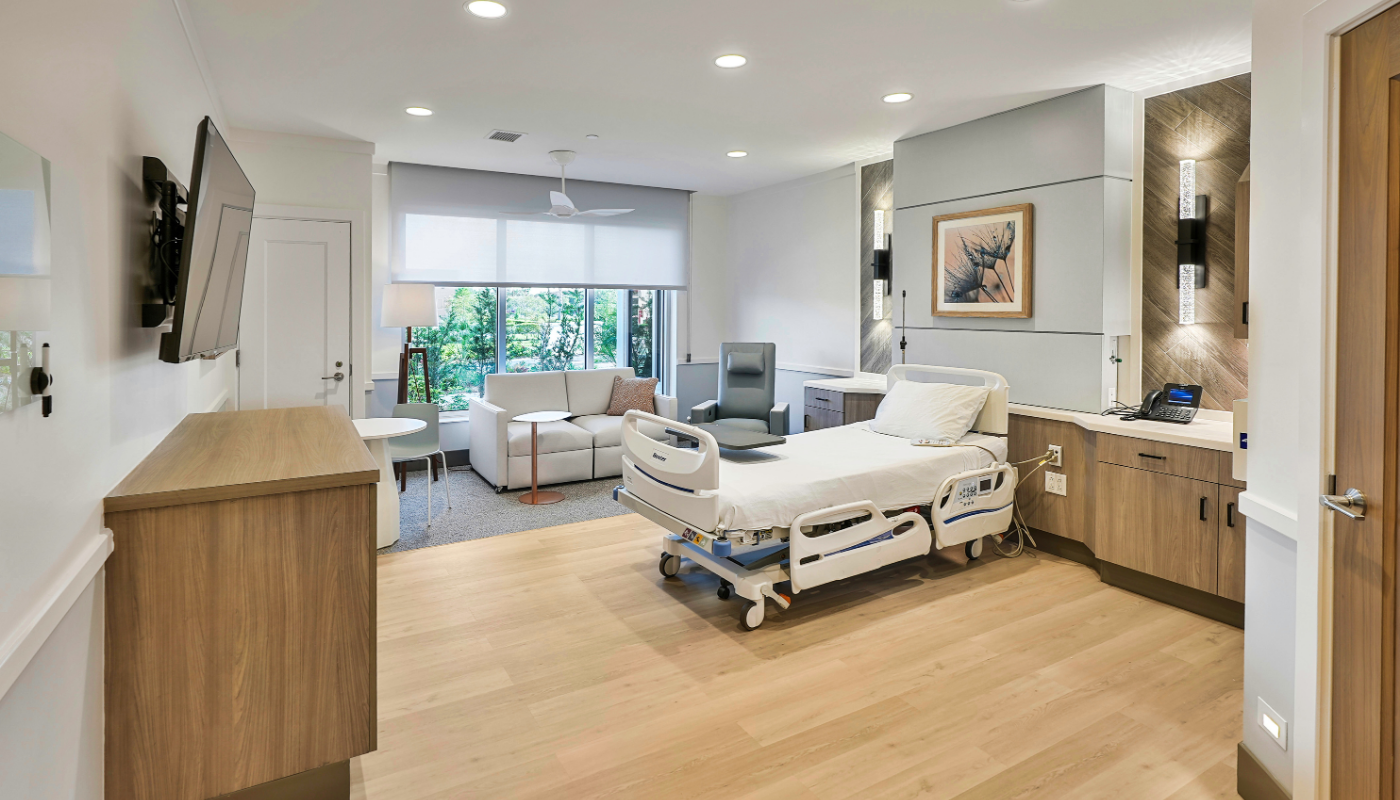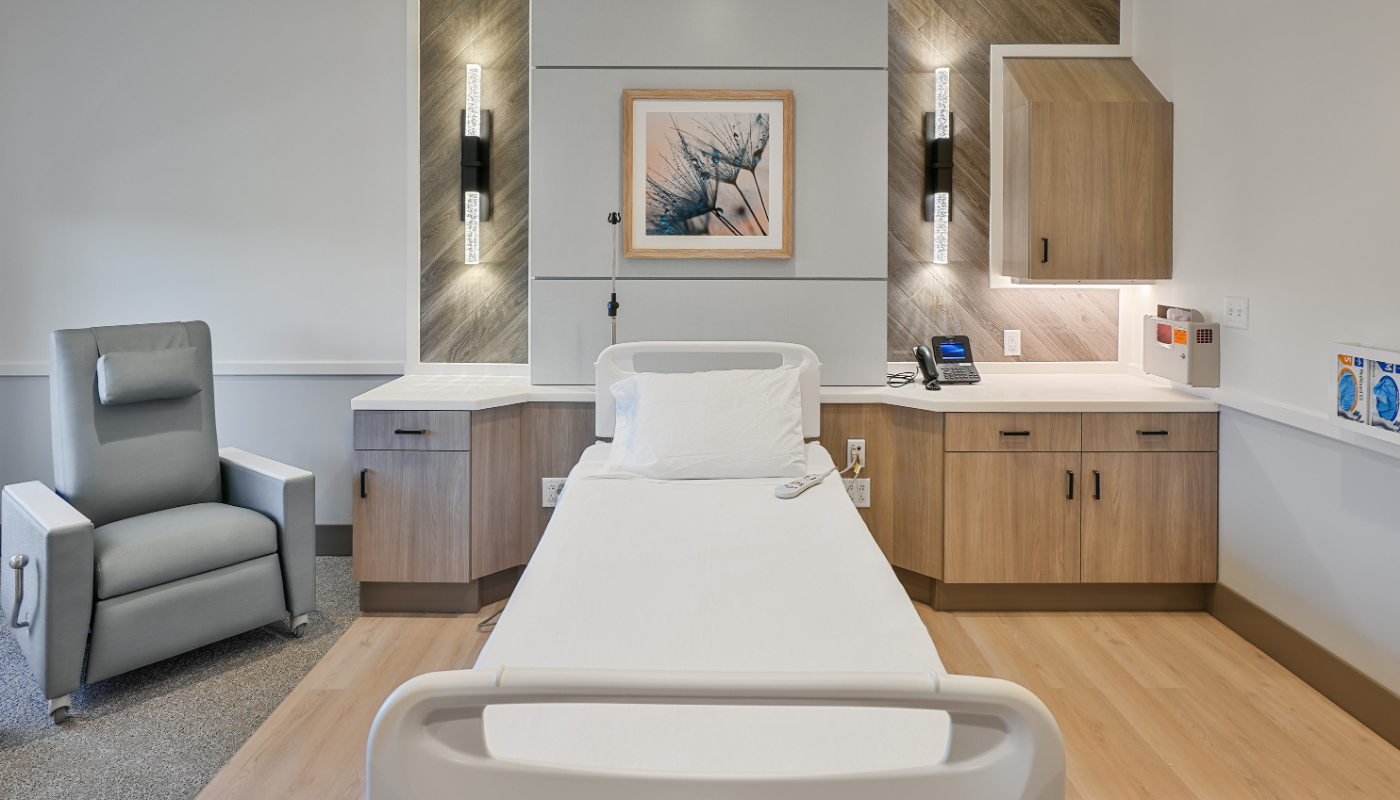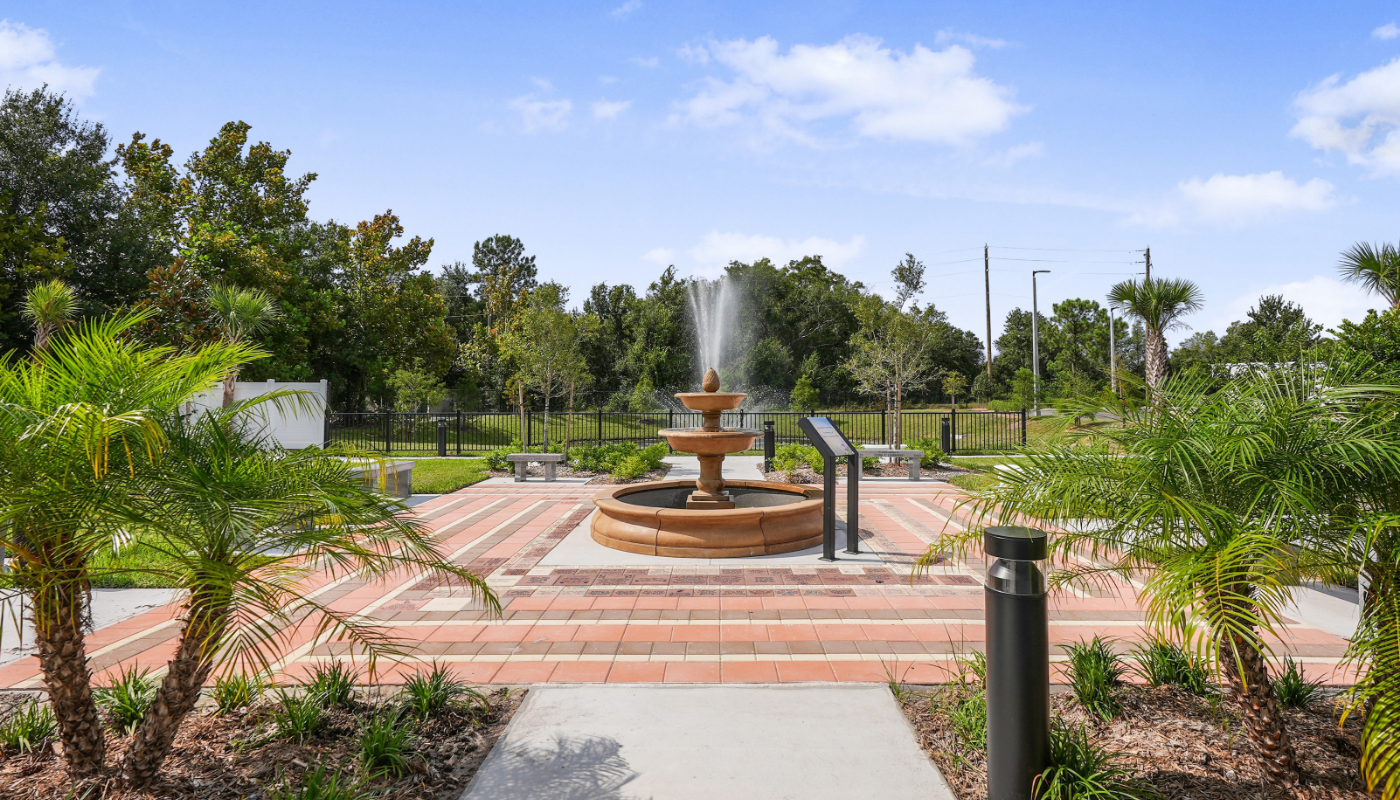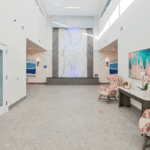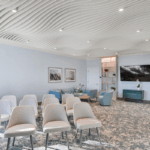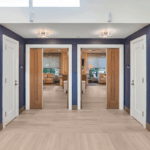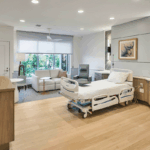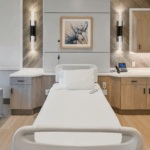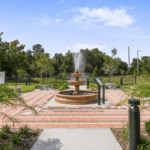A compassionate approach to end-of-life care begins with a philosophy that prioritizes dignity, comfort, and the well-being of the whole person. The Dr. Jay Weil Center for Hospice Care, a new patient and family resource in Pasco County, Florida, is a testament to this philosophy. Part of Gulfside Healthcare Services’ Continuum of Care, the center’s design is purpose-built to create a serene, home-like environment that supports patients, their families, and the dedicated care team, even in the most complex medical situations.
The thoughtful design of the Dr. Jay Weil Center stems from a deep understanding of the unique needs of hospice patients and their families. The facility provides an ideal balance of privacy and community. Its 25,400 SF inpatient care center offers two patient wings with a total of 24 private rooms. Each wing is a self-contained community with a kitchenette, family area, nurse station, work area, and restrooms, creating a sense of a residential neighborhood within the larger facility. Both wings are served by a fully-equipped industrial kitchen and a provider care services core. The layout complements Gulfside’s interdisciplinary care model, allowing seamless integration of the expertise of its board-certified palliative care doctors, registered respiratory therapists, APRNs, RNs, licensed counselors, chaplains, CNAs, and volunteers.
A key differentiator of the Dr. Jay Weil Center for Hospice Care is its advanced capacity for critical-care-level services and intensive symptom management. While some hospices are limited in the types of patients they can accept, this facility is specially equipped to bridge the gap between hospital-level care and a comfortable, home-like environment. The building is equipped to support oxygen service, a critical feature for patients with complex respiratory needs. The building is also designed to accommodate specialized needs such as bariatric patients and patients needing ventilators. These capabilities enable patients who would otherwise have to remain in a hospital setting to receive the full benefits of hospice care in a supportive and peaceful environment. The careful space planning includes lines of sight, adjacencies, and thoughtfully-placed supplies designed to help caregivers respond quickly to patient needs.
Beyond the clinical considerations, the center’s design is a deliberate act of care for both patients and their loved ones. The entire facility is designed to be calming and welcoming, from the covered porte cochere entrance to its spa-like interiors. Once inside the secure main entrance, a floor-to-ceiling waterfall provides a sense of arrival and calm inspiration. The serene reflection room, with its beautiful, undulating ceiling and stained-glass windows, provides a sacred space for prayer or quiet reflection. Each patient wing includes thoughtfully-designed family gathering rooms with comfortable, flexible areas for families to gather, shared meals, and foster closeness in life’s final chapter. Each spacious patient room includes comfortable seating for multiple visitors and the ability for a loved one to stay overnight in the patient’s room.
The connection to nature is a cornerstone of the facility’s design approach. Each of the 24 patient rooms looks out at native plants and landscaping. Groups of clerestory windows illuminate the lobby and family kitchen areas, bringing in the restorative power of natural light. The 3.4-acre campus, located on a quiet side street in New Port Richey, features a Memory Garden with a walking path and benches, a pavilion with a fountain, and a pond with a water feature. These spaces are intentionally designed to offer opportunities for reflection, healing, and connection with nature, supporting the emotional and spiritual well-being of all who visit.
The Dr. Jay Weil Center for Hospice Care is more than a building; it is a lovingly crafted environment that embodies the core principles of hospice care. By creating a space that is both clinically advanced and holistically person-centered, it provides a sanctuary where even the most complex patients can live their final days with comfort and dignity, and where families feel cared for and supported.


